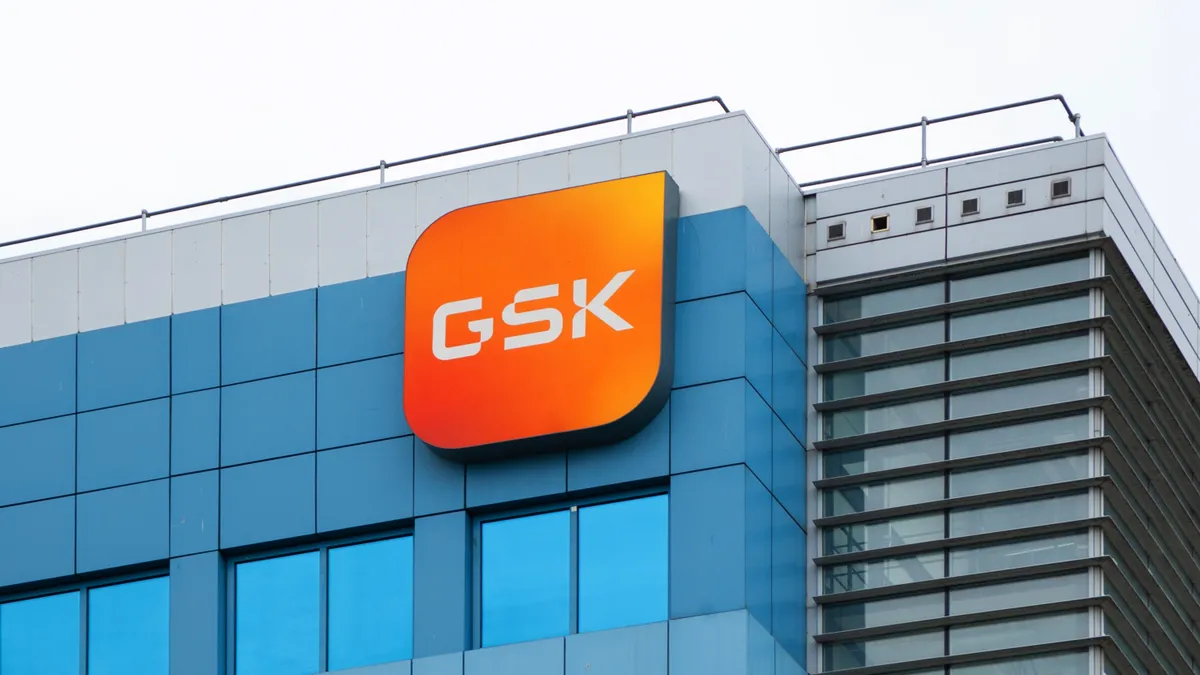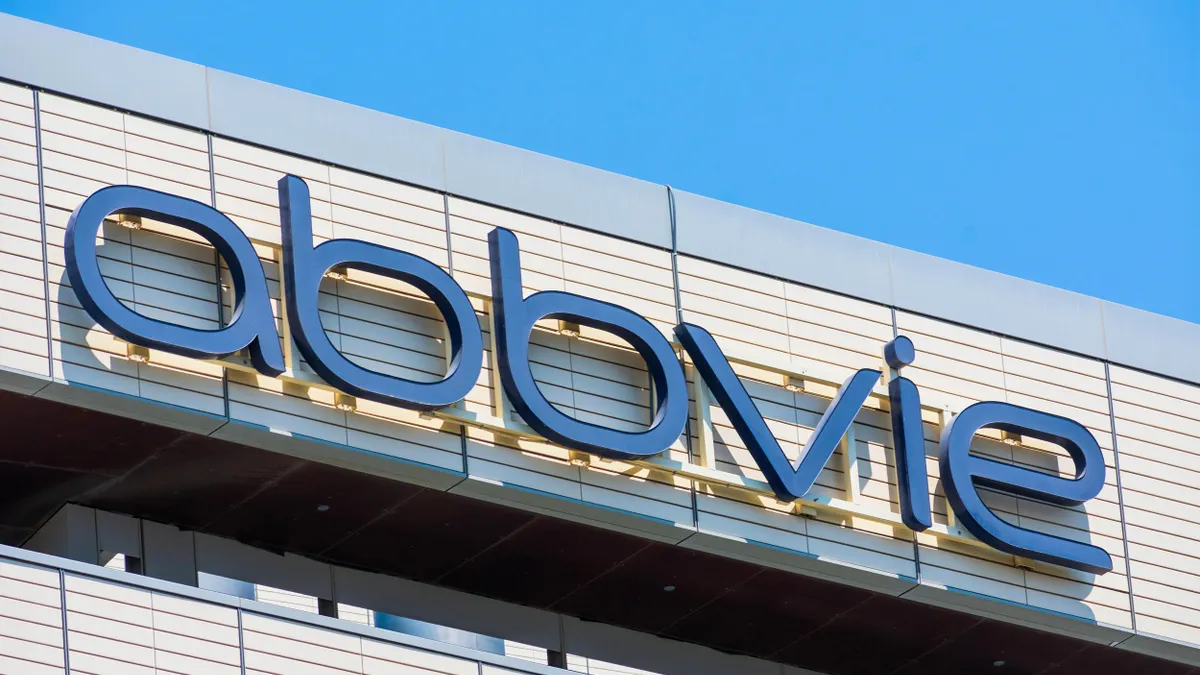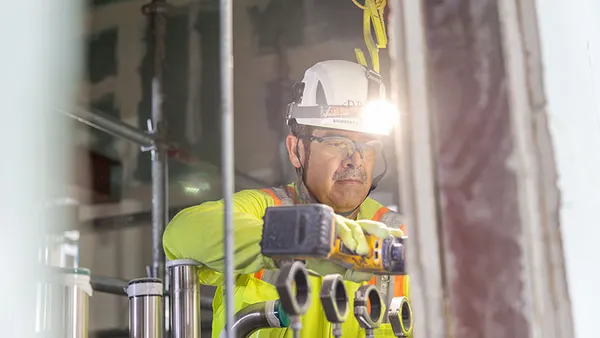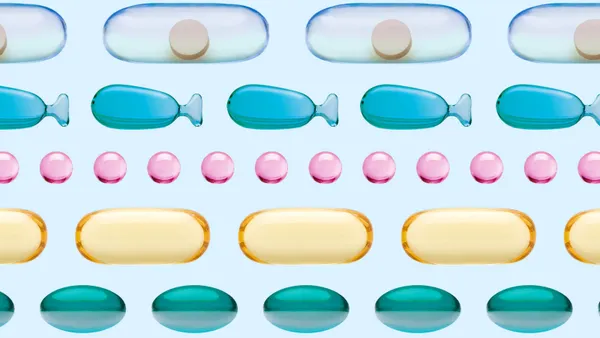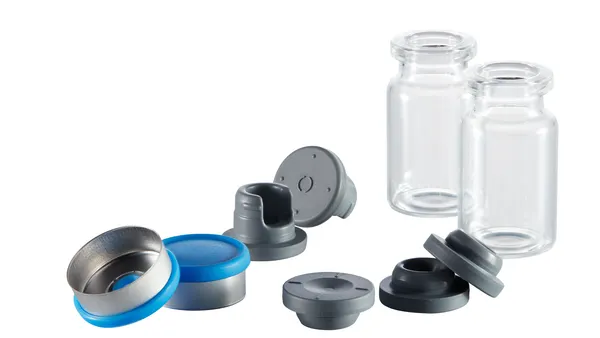Contract development and manufacturing organization Avid Bioservices announced just a few weeks ago that it is expanding its process development capabilities and lab space in Orange County, California to bring its total available space to more than 6,000 square feet.
Avid President and CEO Roger Lias, who joined the company in September 2017 and previously served as head of global biologics business development for Allergan, talked to BioPharma Dive about his company, the state of the industry and what sort of customers Avid is looking to serve.
This interview has been edited for clarity and brevity.
BIOPHARMA DIVE: How did former roles position you to be in the right place for Avid?
ROGER LIAS: It is an incredibly technically challenging business — very highly regulated. I think, in particular, what I have learned is patience. It's a long, slow burn business, but if built properly it can be extremely commercially attractive and rewarding.
This is the first time in Avid's history that it has operated as a dedicated full service biologics CDMO, having previously been an excess capacity provider. We have a highly complicated sales-cycle and we also have to deal with lumpy demand and revenues for each project as it progresses through technology transfer, process development, clinical manufacturing, scale-up, validation or whatever the client contracts for.
Even for later-stage projects where we may be doing process validation work, we have to wait for regulatory approval of the client's product before steady commercial production commences. For all of these reasons we really have to manage our business and schedules very carefully because this is, essentially, an "occupancy business."
The bottom line is that it's necessary to be patient; to fully understand the development cycle and client needs and to develop very close working relationships — partnerships really — with our clients.
What sort of customer mix do you currently cater to?
LIAS: At a high level, we currently manufacture drug substance for biologics derived from mammalian cell culture. Our customers are international biopharmaceutical developers ranging from emerging biotechs to multinational pharma companies.
But by product class we're quite happy to take on monoclonal antibodies and their derivatives such as multi-specifics, antibody drug conjugates and so on, but we're equally happy to work with very highly complex proteins, enzymes, fusion products, biosimilar programs and other more challenging projects. We offer a comprehensive range of services — our clients come to us and access our services anywhere from providing a DNA sequence on a piece of paper so that we can to develop a highly productive and stable production cell line, right through to commercial cGMP production.
It is important to highlight that we are currently in the unusual, possibly unique, position of having 2,000 L scale bioreactor capacity immediately available in new state-of-the-art facilities, all supported by proven quality systems and a long and successful record of regulatory inspections by global authorities — so we're clearly looking to fill that capacity.
At the same time, it's absolutely important that we are diversifying both our customer base and the type of projects we bring in, in order to address the long slow burn associated with long development cycles for biologics. We have to be able to fill capacity, keep ourselves busy and mitigate risk. You don't typically do that with one or two customers — we need a good mix.
As we recently announced, we are expanding our process development laboratories and capabilities to address the goal of customer diversification, and that's been key in facilitating the on-boarding of numerous new early-stage client programs this year.
Do you have a specific customer that you'd really like to take on?
LIAS: By class of product I think we have to be again, agnostic, our job is to fill our bioreactors and ultimately I guess it doesn't matter particularly whether its an antibody or a fusion protein or a biosimilar or an innovative product. We have an unusual opportunity to rapidly bring late-stage or commercial projects — perhaps second source — into our Myford facility and that is exciting. At the same time, keeping our process development scientists, pilot facility and smaller scale cGMP capacity busy is equally important.
Is it true that you are the only pure-play biologics CDMO?
LIAS: That is an interesting question — I don't think it's true. There are other pure-play biologics CDMOs out there but we are becoming, without a doubt, few and far between. There has been a wave of acquisitions and consolidations in recent years that has resulted in a declining number of independent CDMOs. We may be the only one that is publicly traded, I'll say that much ... but there are other private independent biologics CDMOs out there. The complex nature of our business, capital requirements, need for experience and a host of other factors make the barriers-to-entry considerable.
If you look at our peers with respect to size, whether it's based on volumetric capacity, employees, or revenues, many are either owned by major industrial concerns and/or part of much larger pharma services organizations that are not focused purely on biologics.
It seems there have been a lot of announcements about facility openings and capacity opening up in Asia. Does Avid have a presence there? What is your view on companies moving there?
LIAS: There is clearly tremendous market opportunity in China and Southeast Asia, but I believe that, to date, we are seeing the marketplace tend to differentiate between products intended to be marketed domestically in those markets and products being commercialized for more highly regulated markets.
At Avid Bioservices we don't have a physical presence in Asia, but we have won business from within that territory based on our long inspection history with U.S., EU and other regulatory authorities.
We are seeing very significant investment in biologics manufacturing capacity in China and elsewhere, but, with some notable exceptions, many of the CDMO players are intending to serve domestic markets, at least initially. I believe the key to success in penetrating the more highly regulated markets will be attracting and developing experienced staff and building a successful track record.
There are clearly exceptions to this, such as Samsung Biologics and WuXi — it's really remarkable what they're doing in large-scale biologics manufacturing. I have no doubt that those guys are "doing it properly." Do we see Samsung as a direct competitor right now? No. While there may always be competition for specific projects, we see them as moving in different market spaces.
It would be a mistake to overlook the potential of the Asian markets and we are looking at expansion into these areas over time — but we have significant demand in North America and are focused here at the moment. That said, the design of our modular Myford facility can be relatively easily replicated in Strasbourg or Shanghai or Sydney to meet market demands in international markets when the time is right.
I think the demand for biologics manufacture is likely to continue to outstrip supply at a macro level for a while, but modeling this market is far more complex than simply attempting to match "kilos required" with "bioreactor liters installed" — there are so many more technical and commercial variables that need to be taken into account.









